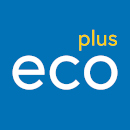
Circular Economy
Adopting nature-oriented economic methods means thinking in closed cycles. Functioning ecosystems make use of everything. Any “waste” created by one living being is used by another. In order to realize the vision of a circular economy, this model must be translated into the material transformations of an economic area by turning the until now mostly linear recycling chains into closed cycles.
The platform for Green Transformation and Bioeconomy has set itself the goal of promoting broader thinking in such cycles among Lower Austrian companies, supply chain managers and waste and environmental officers. Following the example of natural ecosystems, one’s waste can become another’s resource. Municipal waste collection is also an important material resource. Last but not least, the Province of Lower Austria surrounds the city of Vienna, which with its numerous households and companies is an almost inexhaustible source of raw materials for a tightly woven circular economy network.
Numerous building blocks are already in place in Lower Austria to make this vision a reality:
- Technopol Wieselburg has accumulated extensive knowledge in the cascading use of biogenic resources, in which the processing of agricultural waste is also embedded.
- FH Campus Wieselburg as well as the food and plastics clusters have come to understand food waste and packaging as a valuable resource and to find new ways of recycling them. The project “Stop Waste-Save Food”, for example, explored how well-thought-out packaging solutions can help reduce food waste.
- The PlasTexTron network, in particular the project “Tex2Mat”, explored how textile waste, which is inevitable in textile production, can flow back into fiber production even when different types of polymer are mixed together.
- As part of the plastics cluster project “From waste to resource”, numerous companies were able to learn how to use a waste management concept to identify previously neglected material flows and make them usable, while at the same time calculating their own CO2 footprint.
- At Technopol Tulln, several research groups have many years of experience in the field of environmental biotechnology and can use microbial processes to treat waste and wastewater and to produce biogas.
The network of companies involved in these activities includes companies in the food, textile, plastics and automotive supply industries, compounders, providers of recycling systems, agricultural operations and many more.
The implementation of the vision is currently facing major challenges: In many cases, the costs of the entire life cycle are not included in the market price of a product. Target sectors such as the automotive industry place very high quality requirements on their suppliers, which cannot always be met with recycled material. In many sectors, it is necessary to create an awareness of the intrinsic value of “waste materials” and to promote product design based on ecological criteria.
Examples
Contact
Platform for Green Transformation & Bioeconomy
Florian Kamleitner
+43 664 601 19671
